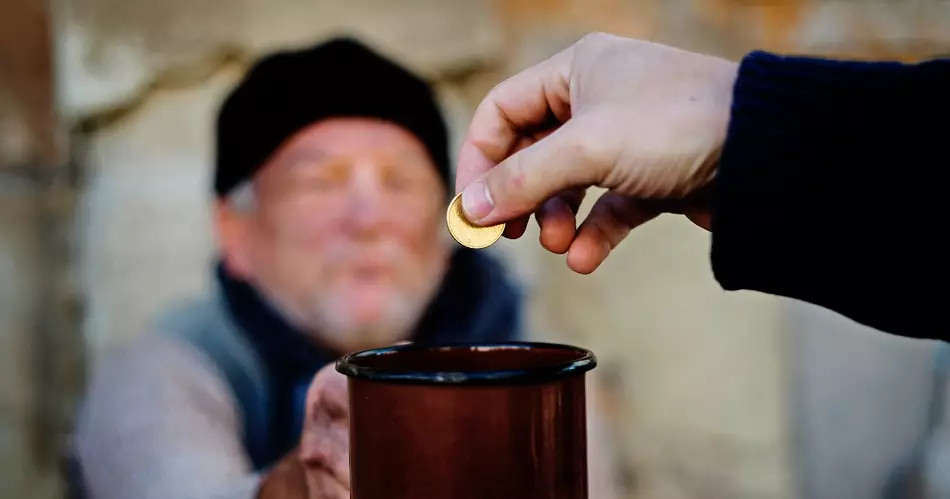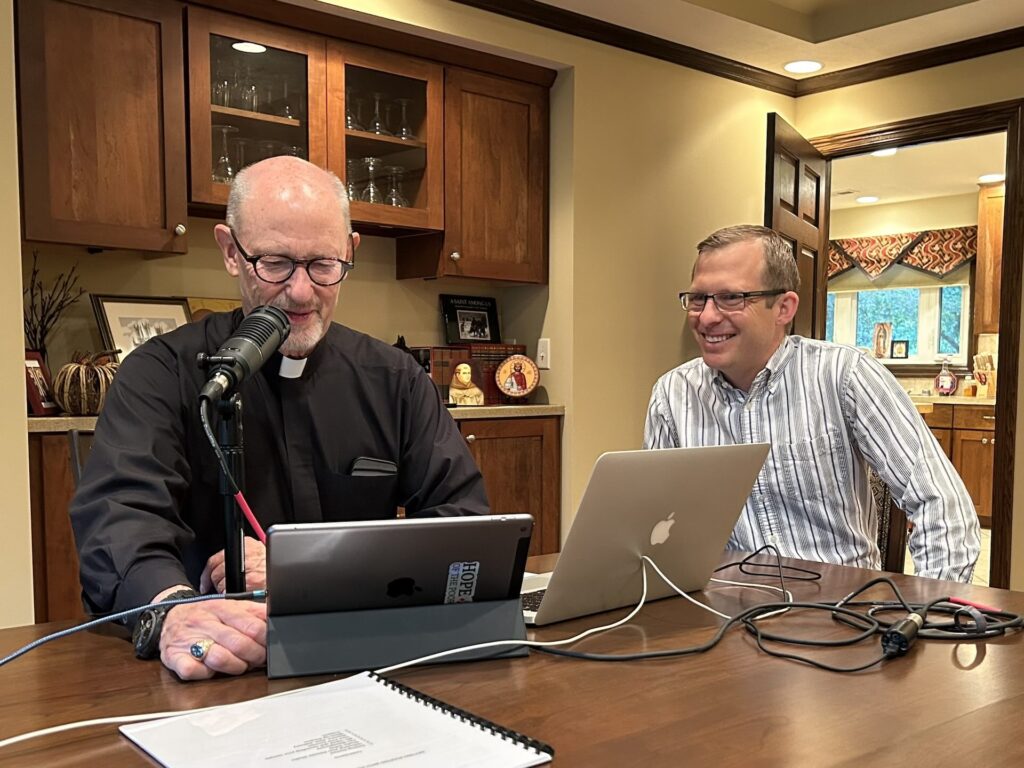In week four of Lent, Exodus’s fraternity challenge is to practice almsgiving. This is, of course, a central practice of the Lenten season and one implied by the disciplines of Exodus but which we can make more explicit. Fr. Boniface Hicks, OSB, has explained in his spiritual guidance for us that the Exodus disciplines are ordered toward charity. Prayer seeks communion with God, pulling back from distractions enables us to be more present, and refraining from unnecessary purchases should help us to be able to give to others.
As we turn toward God in prayer this Lent, we should also turn toward our neighbors, recognizing their needs. Jesus takes it for granted that his followers will give alms, meaning offering gifts to the poor (versus the tithe we make to support the Church). He says, in the Sermon on the Mount, “when you give alms” (Matthew 6:2). It is not a matter of if but when. And when we give alms, without doing so to be seen by others, “your Father who sees in secret will reward you” (v. 4).
The word “alms” stems from the Greek word for “mercy.” It’s no wonder, then, that Jesus would say in a parallel chapter of Luke’s Gospel, “Be merciful, just as your heavenly Father is merciful.” Everything that God gives us is a gift. He wants us to hand on the gifts he gives us so that we can become like him, a source of love for others. Alms give concrete expression to the love that we must have for our neighbor, who is a child of God.
The Lenten practices of prayer, fasting, and almsgiving stand together for a reason. Jesus taught us to do them himself in the Sermon on the Mount. He himself fasted and prayed, and his entire life was a gift of mercy for us. As his disciples (students), we must do what we see our master (teacher) doing. We must become like him using our time and gifts to imitate the gift of his own life for us.
As we move into Passiontide and Holy Week, we can take up these Lenten practices with increased fervor, making up for lost time if necessary. If we invest our goods in the poor, we will reap a profit greater than any other use of money. At some point, all of our savings will be lost, but the alms we offer will be rewarded in heaven, as Jesus points out. Let’s make good use of our money, allowing it to become part of the offering of our lives to God. In this way, our money, too, can be part of the turning of our whole being to him.





